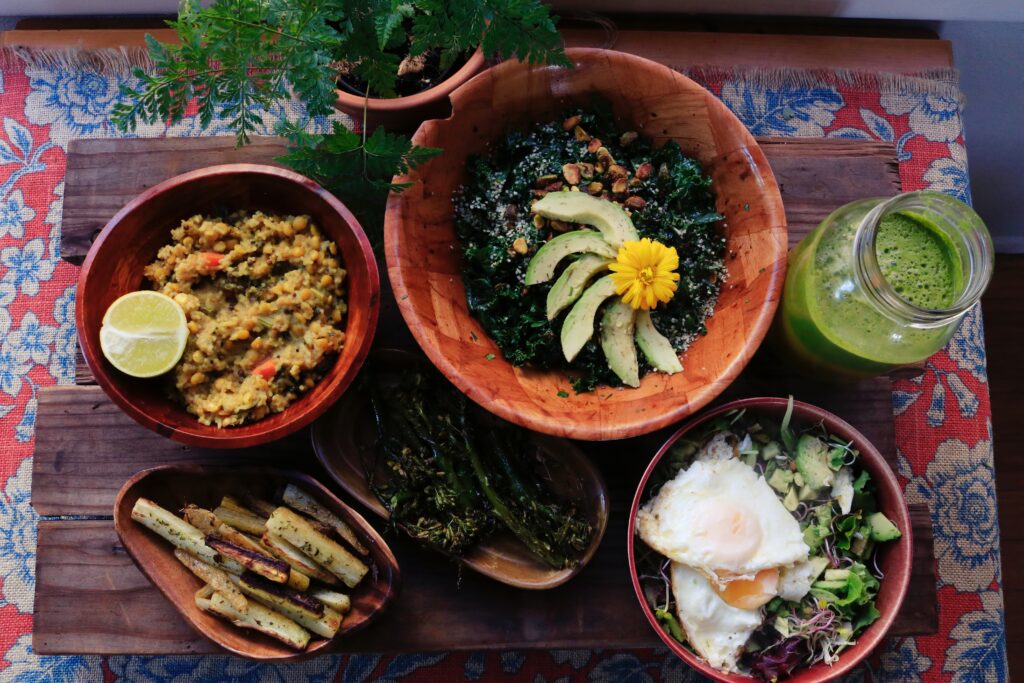Ayurvedic Approach to Food: Combating Stress, Promoting Health
 In the hustle and bustle of modern life, stress has become an unwelcome companion for many, especially for the young adults in the 18-35 age group. The pressures from work, higher education, and personal responsibilities often lead to neglect in our dietary habits; we end up reaching for the quickest, and unfortunately, often the unhealthiest food options. What if there was a path to combat stress, ward off diseases, and lead a healthier life, all through the power of mindful eating? The age-old wisdom of Ayurveda, an ancient Indian system of medicine, provides just that.
In the hustle and bustle of modern life, stress has become an unwelcome companion for many, especially for the young adults in the 18-35 age group. The pressures from work, higher education, and personal responsibilities often lead to neglect in our dietary habits; we end up reaching for the quickest, and unfortunately, often the unhealthiest food options. What if there was a path to combat stress, ward off diseases, and lead a healthier life, all through the power of mindful eating? The age-old wisdom of Ayurveda, an ancient Indian system of medicine, provides just that.
It advocates a holistic approach towards food, viewing it not merely as sustenance, but as a powerful tool to maintain physical and mental well-being.
The Ayurvedic Philosophy of Food
At the heart of Ayurveda lies the belief that food is medicine. It places great importance on a balanced diet for maintaining health and preventing diseases. Ayurveda categorizes food into three types: Sattvic (pure), Rajasic (stimulating), and Tamasic (dull). Sattvic foods like fresh fruits, vegetables, and whole grains are recommended as they nourish the body, promote clarity, and create a sense of peace. Conversely, Rajasic and Tamasic foods, encompassing processed and fried foods, can lead to restlessness and lethargy, respectively.
The Connection Between Stress and Food: An Ayurvedic Perspective
When we experience stress, our body triggers the ‘fight or flight’ response, releasing cortisol, the stress hormone. High levels of cortisol can cause cravings for salty, sweet, and fatty foods, leading to stress eating. This not only results in weight gain but also disrupts overall health.
The Ayurvedic approach to food offers a solution to control this stress response. Integrating foods rich in complex carbohydrates, like whole grains and fresh fruits, into your diet can help lower cortisol levels. Additionally, certain foods known for their stress-reducing properties can be beneficial. Berries and dark chocolate, high in antioxidants, and avocados, rich in magnesium, are some examples.
Ayurvedic Diet: A Pathway to a Stress-Free Life
Incorporating Ayurvedic principles into your diet doesn’t require a complete pantry overhaul. Here are some simple, practical steps:
Embrace Sattvic Foods: Include fresh fruits, vegetables, nuts, seeds, and whole grains in your diet. These nutrient-dense foods promote a calm and clear mind.
Hydration is Key: Ayurveda emphasizes the role of water in detoxifying the body. Staying well-hydrated can also help manage stress and increase energy levels.
Practice Mindful Eating: Ayurveda encourages being present while eating. Savoring each bite and being aware of your hunger and satiety cues can prevent overeating and enhance the overall dining experience.
By integrating these Ayurvedic principles into your daily life, you can use food as a tool to manage stress and promote overall health. Remember, you are what you eat. Making mindful, healthful choices can lead to a happier, stress-free life.
In conclusion, the Ayurvedic approach to food highlights the power of a balanced diet in combating stress and warding off diseases. So, let’s embolden ourselves with the wisdom of Ayurveda, making food choices that nourish not just our bodies but also our minds

